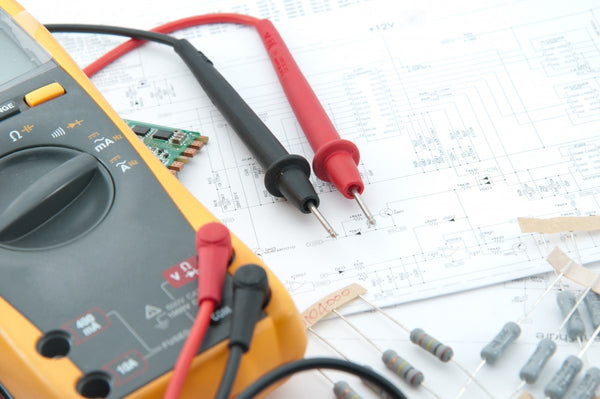The Best Multimeter for Every Situation: How to Choose the Right One for You
When it comes to choosing the best multimeter for your needs, there are a lot of factors to consider. With so many different models on the market, how do you know which one is right for you? In this blog post, we will discuss the different types of multimeters and help you decide which one is best for your individual situation. We'll also provide some tips on how to use a multimeter and what to look for when shopping for one. So whether you're a beginner or an experienced DIYer, read on to find the best multimeter for your needs.
There are three main types of multimeters: digital, analogue, and hybrid. Each has its own advantages and disadvantages, so it's important to choose the right one for your needs.
Digital multimeters are the most common type and are typically easier to use than analogue or hybrid models.
Analogue multimeters are less common but offer a few advantages over digital models. They're typically more durable and can be easier to read in low-light conditions, however, our Kaiweets multimeters offer backlit, LCD displays for use in darkness!
Hybrid multimeters are a relatively new type that combines the best features of digital and analogue models. They're often more expensive than other types, but they offer the best of both worlds.
Now that you know the different types of multimeters, it's time to learn about the features that matter most. Here are a few things to keep in mind as you shop for the perfect multimeter for your needs.
Accuracy is one of the most important features to consider when choosing a multimeter. Most models have an accuracy of +/- three percent, but this can vary depending on the type and brand.
If you need a highly accurate multimeter, look for one with an accuracy of +/- one percent. These models are more expensive, but they're worth the investment if you need to get precise measurements.
Another important feature to consider is the range. Most multimeters can measure up to 600 volts, but some models can go up to 1000 volts. If you need to measure higher voltages, make sure to choose a model with a high range.
Some multimeters come with features like temperature measurement and data logging. These extra features can be handy, but they're not essential for most users. If you don't think you'll use them, save yourself some money and choose a model without them.
Finally, take a look at the price tag. Multimeters vary widely in price, from around £20 to over £400. If you only need a basic model, you can save yourself some money by choosing a less expensive option. However, if you need a multimeter with more features, you'll need to be prepared to pay a bit more.
Now that you know what to look for, it's time to start shopping! Multimeters to suit all applications and budgets are available from our online store.

